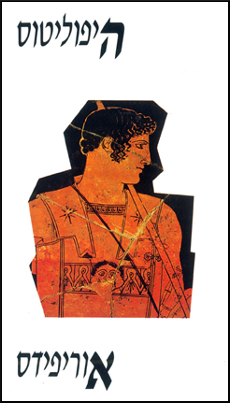Anabasis: The March of the Ten Thousand by Xenophon. The introduction (by Robert Payne) absolutely bashes Xenophon as “not a genius” (based on his writings about his teacher Socrates, for example) and regards Hellenica as work that was commissioned by the Athenians (was it?), and describes it, “a dull and insufferable work ... except for one glorious passage describing with classic relish the downfall of Athenian power”. I wonder what that passage is; it is clearly less colorful than, say, Herodotus, but I’m not sure if it is more dull than Thucidides.
As for Anabasis, the entire work is amusingly self-serving for Xenophon, but the seventh book really over-does it, with how Xenophon cares not for himself but only for his forces, and how he gained nothing monetarily from the entire expedition, except — in the very last page or two — he happened to encounter a rich Persian and attack him, just by himself and a handful of officers. Which of course explains any riches he may have reached home with. Also, Xenophon is shown as extremely devote, sacrificing victims to the Gods whenever he has a choice to make, and following their guidance. One wonders if he really was that pious, or else he just presents himself as such, and uses the signs from the Gods as rationalization for his actions. (Note that when he wondered if he should join Cyrus, Socrates told him to ask the god in Delphi, but he asked instead what should he take with him, i.e., he presumed the answer to be positive.)
The copy I’ve read is the Limited Editions Club edition. First time I’m reading one of theirs; the workmanship and quality of print in this volume is nothing short of amazing. But ... the translation provides dollar values to monetary amounts in the text, as footnotes (e.g., p. 23: “ten thousand darics” is noted to be “About $95,000 ... in modern currency.”) This is amusingly short-sighted.
Medea by Euripides. Translated from the Greek by Aharon Shabtai. Euripides comes across as a real misogynist (see, e.g., Jason’s speech in lines 568-575).
Hippolytus by Euripides. Translated from the Greek by Aharon Shabtai. Shabtai’s introduction is dense and impenetrable as always; by now, I practically gave up on understanding these. But his footnotes are brilliant. The very first footnotes, relating to Aphrodite’s opening speech in the prologue, present the core of the same ideas from the introduction, but in a manner that is so much more lucid. On the other hand, he translates Κύπρις (Cypris) as “Aphrodite”, as indeed do many translations to English, just because this is her “more familiar” name in modern culture. I find this annoying.
Permanent Record by Edward Snowden. Not a lot of new revelations, except on his personal life-story (heritage, joining the army, etc.). Interesting to see how the violence of 9/11 made him join the army — I expect the US armed forces had a significant bump in the quality of their average recruits in the early naughts.
His first hack was amusing: at age six, winning over his parents’ demand for a lights-out at a given hour by turning back all the clocks in the house.
For studying Henry IV, Part One, I’ve read:
- A Hebrew translation by Refael Eliaz, originally published in 1961. The Hebrew is a tad too Biblical: “If reasons were as plentiful as blackberries, I would give no man a reason upon compulsion, I” is rendered as ’’וַאֲפִילּוּ אֲנִי מָלֵא פֵּרוּשִׁים כְּרִמּוֹן, גַּם אָז אֵינִי מְפָרֵשׁ אֶת דְּבָרַי בְּכׂחַ הַכְּפּיָה לִפְנֵי שׁוּם אָדָם שֶׁבָּעוֹלָם”.
- The original text, with introduction by Herschel Baker and notes, from The Riverside Shakespeare, edited by Evans et al. And all of a sudden I encounter the phrase, “This sickness doth infect / The very life-blood of our enterprise” — which was quoted, very much out of context, in my PhD thesis; as was a line from Aristophanes’ The Frogs; and I ended up (finally) reading both, within a month of each other, a dozen years plus later. Who would have thunk.
- The original text again, with introductions by Jean E. Howard, Jesse M. Lander, and Brett Gamboa, and notes, from The Norton Shakespeare, Third Edition, edited by Greenblatt et al.
- The chapter on Henry IV, Part One from Asimov’s Guide to Shakespeare, Volume Two: The English Plays, by Isaac Asimov.
- The Shakespearean Vision, units 5-6, by Elizabeth Freund. Israeli Open University textbook.
Is not the truth the truth?

- A Hebrew translation by Avraham Oz. I liked Oz’s translation when I’ve read his Midsummer Night’s Dream (see the Sept-Oct log); but no, this is too much. Oz adds completely uncalled-for wordplays that simply did no exist in the original, or else are multiplied unnecessarily. Kent’s outlash on Oswald (II.ii) is one of several such places. He avoids the imperative tense in Hebrew, probably with an aim to sound more “natural”, but over-does it to the extent that the text sounds unnatural. Not to mention simple translation mistakes.
- The original text, with introduction by Frank Kermode and notes, from The Riverside Shakespeare, and
- The original text again, with introductions by Stephen Greenblatt, Grace Ioppolo, and Brett Gamboa, and notes, from The Norton Shakespeare, Third Edition.
- The chapter on King Lear from Asimov’s Guide to Shakespeare
- The Shakespearean Vision, units 7-8, by Elizabeth Freund. Israeli Open University textbook. Freund’s Hebrew sent me to the dictionary more than once, I must admit. But more interestingly, Wilson G. Knight’s analysis of the cliff-jumping scene is brilliant.
C.S. Lewis’s Edmund is so clearly named after bastard Edmund in Lear!
New Reviews Notification |
To receive notifications as new reviews are published,
consider following the RSS feed. |
|





